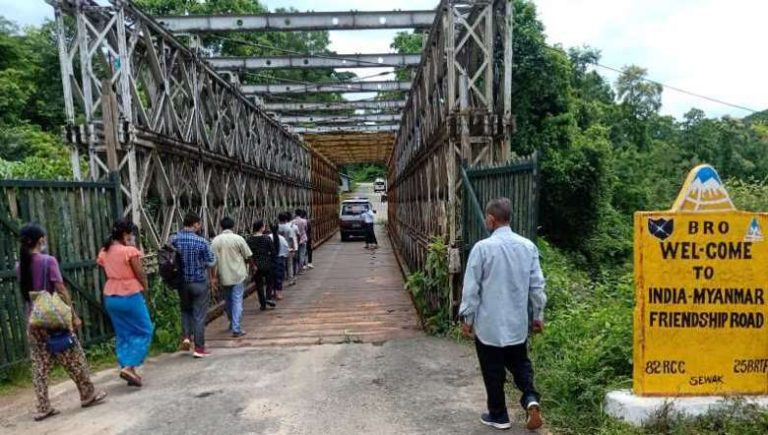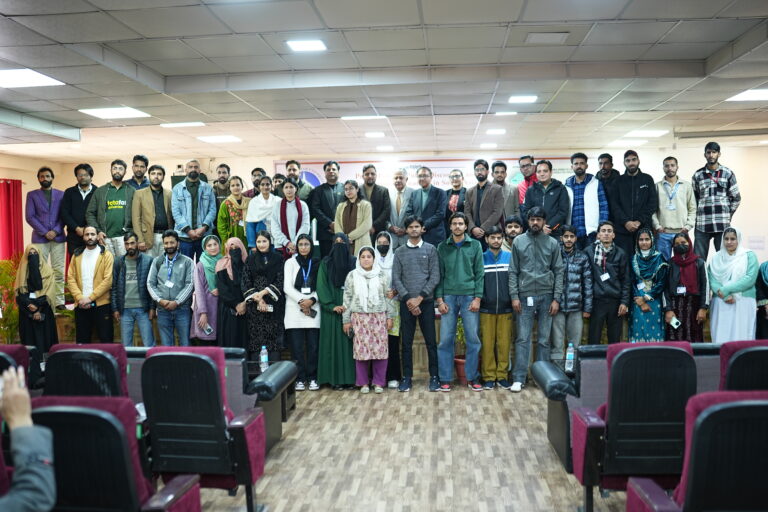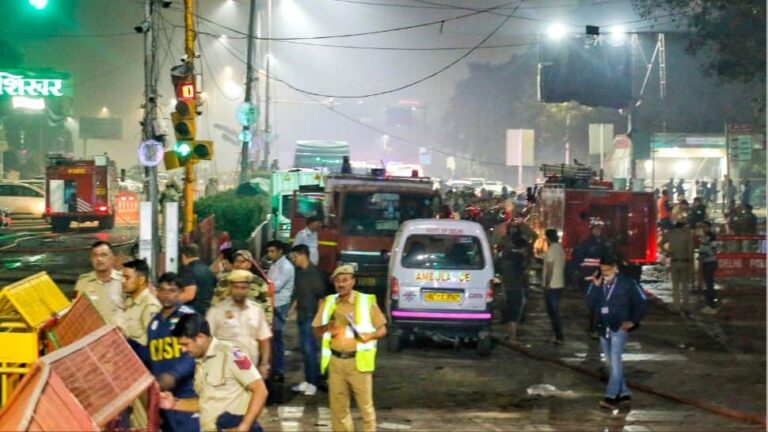In the aftermath of the sharp decline in terrorist recruitment across Jammu & Kashmir a result of sustained security operations, development initiatives, community mobilization, and shifting youth aspirations terrorist networks have been forced to adapt. Unable to rely on mass recruitment or carry out large-scale group attacks, many outfits have evolved their tactics. They now increasingly deploy what India calls “hybrid Over Ground Workers” or OGWs young men and women who never formally join militant ranks but serve as facilitators: guiding logisticians, ideologues, recruiters, spotters for security forces, propagandists, fund-raisers, cyber-operatives, or lone-wolf attackers.
This grey zone warfare allows terror outfits to maintain influence without open confrontation. Their actions, spotting security patrols, sharing information, producing propaganda, or sheltering infiltrators, remain below the legal radar, often eluding conventional counter terror frameworks. Cracking the code of hybrid OGWs has therefore become one of India’s most urgent security challenges.
Hybrid OGWs thrive on ambiguity. They operate between legality and illegality, activism and radicalism, social identity and violent ideology. Many are radicalized gradually, through social media, online sermons, or peer groups, without ever meeting a foreign handler.
They are not typical recruits; they do not pick up weapons or join known groups. Their participation may be limited to sharing disinformation, raising small funds through hawala or donations, or alerting handlers about troop movement. Yet these micro acts are essential to sustaining terror ecosystems.
Because hybrid OGWs never formally affiliate with militant organizations, they escape standard intelligence profiling. Their invisibility is their armor. They blend in, carry no record, and fade away after missions, complicating detection and prosecution.
To understand the hybrid OGW phenomenon, one must go beyond the stereotypes of radicalization. Their motivations are diverse, ranging from ideological conviction and social alienation to economic desperation or misplaced identity politics.
Post 2019 developments in Jammu and Kashmir, including the abrogation of Article 370, triggered psychological shifts among sections of youth. Many, struggling to reconcile identity and opportunity, became vulnerable to extremist narratives of defense and solidarity.
Crucially, many OGWs do not perceive themselves as criminals. They see themselves as defenders of a cause, not as terrorists. This cognitive dissonance, believing one is right even while aiding terror, makes them especially difficult to counter through force alone.
India’s security establishment has gradually adapted to this evolving threat. Intelligence agencies have expanded human intelligence (HUMINT) networks across schools, mosques, and community hubs. Local police, CRPF, and administrative units now combine traditional surveillance with community engagement, encouraging citizens to report suspicious but non violent activity.
Digital monitoring has also intensified. Social media platforms, WhatsApp groups, and Telegram channels are scanned for coded language, radical imagery, and coordinated disinformation. Artificial intelligence tools help identify behavioral clusters indicative of early radicalization.
But India’s approach is not limited to surveillance. Recognizing that hybrid OGWs operate in both physical and psychological spaces, the state has begun deploying preemptive disruption measures, community outreach, youth mentorship, and digital literacy programs to inoculate society against extremist influence.
The battle today is as much online as it is on the ground. Hybrid OGWs use digital anonymity to spread propaganda, recruit sympathizers, and organize logistics. In response, cyber cells of the J&K Police, CERT In, and national intelligence agencies are collaborating to dismantle these online ecosystems.
When radical influencers are identified, their networks are mapped using metadata and financial trails. Many interventions at this stage are non punitive, focusing on counseling, awareness drives, and parental engagement rather than immediate prosecution. Only when behavior crosses into criminal intent are legal provisions under UAPA or BNS invoked. This graded response ensures that counter terror measures do not alienate communities but instead strengthen trust between citizens and the state.
Perhaps the most creative counter to hybrid OGWs lies in reclaiming the narrative. Extremist propaganda thrives on emotional appeal, portraying militants as heroes and India as an oppressor. To dismantle this psychology, the government has turned to trusted influencers, local artists, entrepreneurs, social media creators, and sportspersons who articulate an alternative Kashmiri identity rooted in development, pluralism, and peace.
Through songs, short films, and digital campaigns, these voices counter extremist messaging with stories of progress, humor, and hope. They offer cultural antidotes to radical rhetoric, redefining pride in being Kashmiri as pride in coexistence, resilience, and opportunity.
This soft power strategy, combined with civic empowerment, has begun eroding the appeal of extremist propaganda among youth audiences.
Hybrid OGWs often facilitate small but critical financial flows, storing cash for weapons purchases, aiding militant families, or raising donations under social pretexts. Financial Intelligence Units and police now track such micro transactions, linking them through data analytics between banks, digital wallets, and unregistered trusts.
The integration of RBI and Central FIU systems allows security agencies to trace unusual cash patterns and cut off the financial oxygen that sustains hybrid networks. Every disruption in funding prevents a potential act of violence downstream.
India’s counter OGW framework increasingly balances enforcement with rehabilitation. Young offenders identified at early stages are offered pathways to rejoin mainstream life through skill training, education, sports, and mentorship. Families are engaged as partners, not targets.
This approach prevents stigmatization and breaks the cycle of alienation that extremist networks exploit. Rehabilitation is no longer an afterthought, it is a frontline counter radicalization tool.
The hybrid OGW model did not evolve in isolation. Pakistan’s intelligence apparatus actively promotes such tactics because they are low cost, high impact, and deniable. Diaspora based propagandists and radical media channels abroad produce extremist content tailored for Kashmiri youth.
India has responded by working with foreign governments and tech platforms to identify and remove such content. Diplomatically, New Delhi continues to highlight Pakistan’s state sponsored information warfare, pressing for greater global accountability in cyberspace.
At the grassroots, the government’s investment in sports and cultural infrastructure has proven a subtle but powerful counter measure. New sports arenas, art studios, and digital learning centers across J&K engage thousands of young people who might otherwise be idle or frustrated.
These are not just recreational spaces, they are safe nodes of social reintegration. Coaches, trainers, and mentors act as early warning observers, identifying behavioral shifts and offering guidance long before radical influences take hold.
By filling psychological and social voids with purpose, these centers quietly dismantle the recruiting ground that hybrid OGWs depend upon.
India’s evolving response to hybrid OGWs represents a multi layered security doctrine that combines intelligence precision, social inclusion, and digital innovation. It recognizes that the battlefield has moved from mountains to minds, from bunkers to browsers.
The strategy rests on five pillars: preemptive intelligence, digital counter narratives, financial disruption, rehabilitation, and community resilience. Each success story, each intercepted network or reintegrated youth, adds to a growing body of learning that refines future interventions.
Yet challenges remain. Hybrid OGWs are adaptive and decentralized. Legal frameworks must keep pace with non violent extremism, and digital regulation must balance security with privacy. Vigilance must never slide into vigilantism.
But India’s greatest strength lies in its pluralism, democracy, and youth driven optimism. If these values continue to guide policy, Jammu and Kashmir could soon stand as a global example, a region that defeated hybrid warfare not just with force, but with foresight and faith in its people.
The goal is not merely to eliminate OGWs, but to transform them, to redirect misled energy toward civic engagement and nation building. A youth once radicalized through a WhatsApp channel can become a cyber mentor; a local propagandist can turn into a peace educator.
When hybrid threats are met with hybrid responses, where intelligence meets empathy and technology meets trust, India demonstrates a new model of democratic strength in the age of asymmetric warfare.
The code of hybrid OGWs is complex, but India’s approach is clear: fight the shadow with light, and build peace not only through deterrence but through dignity.











